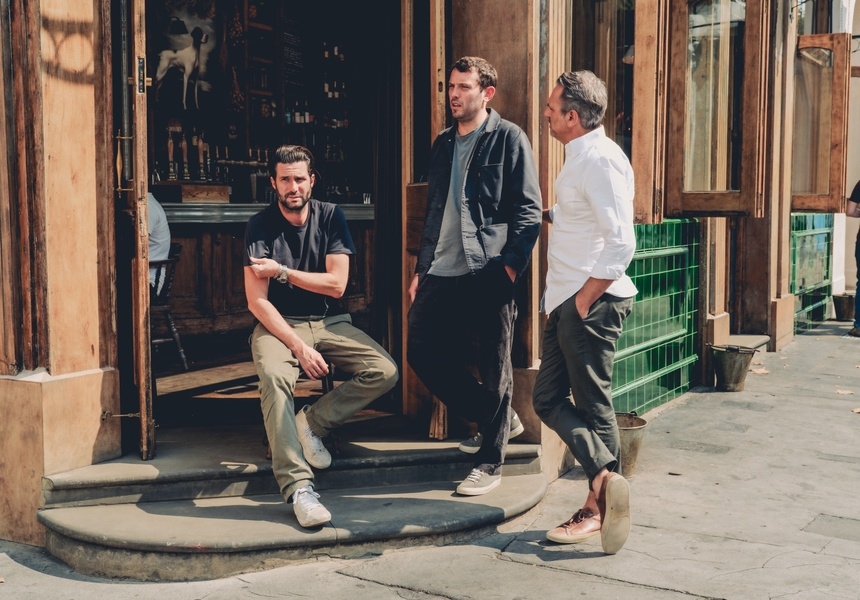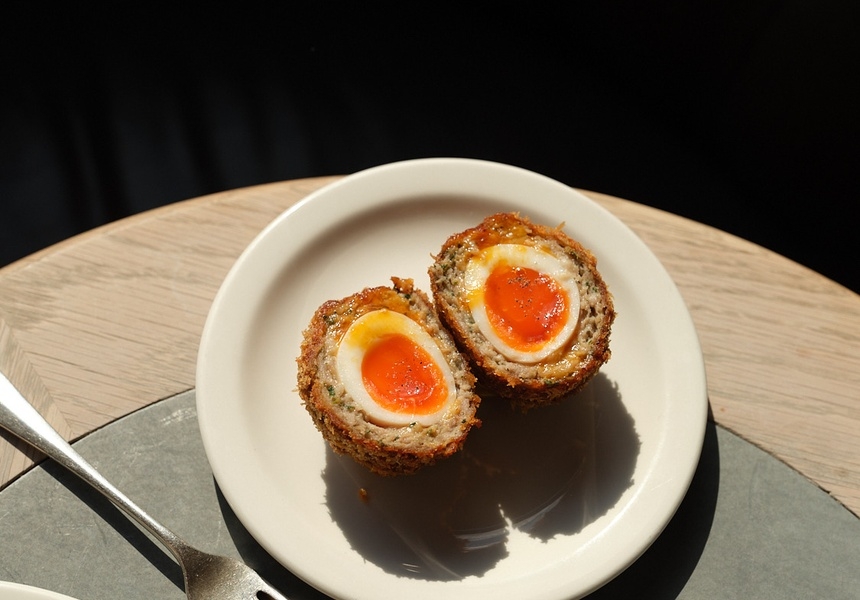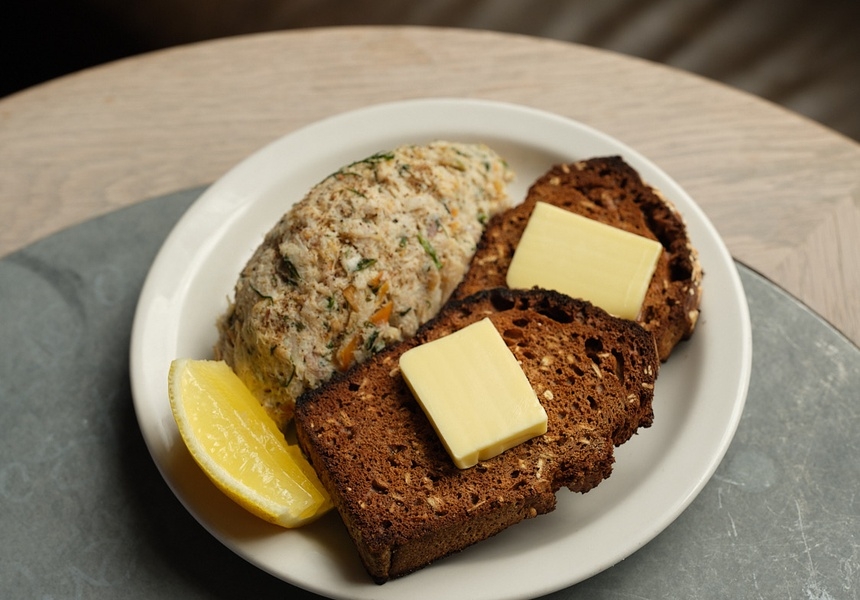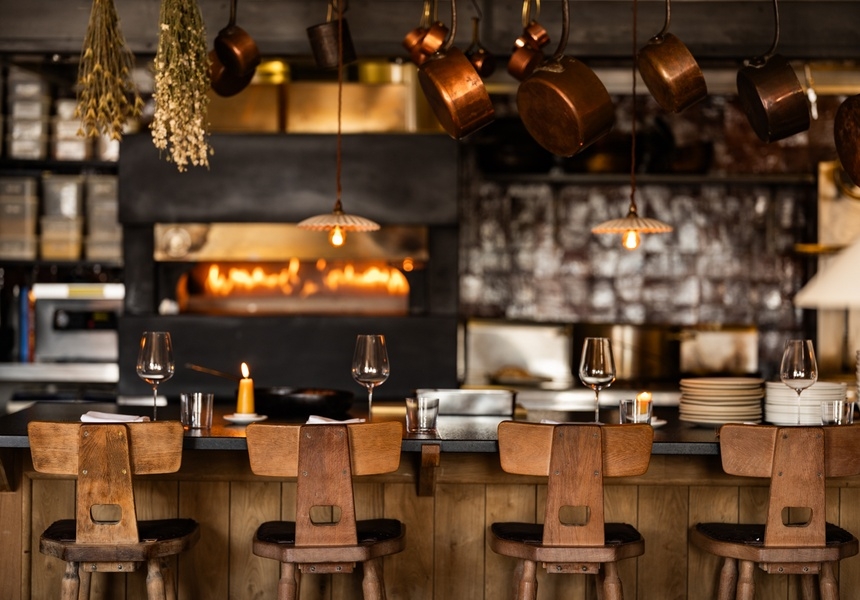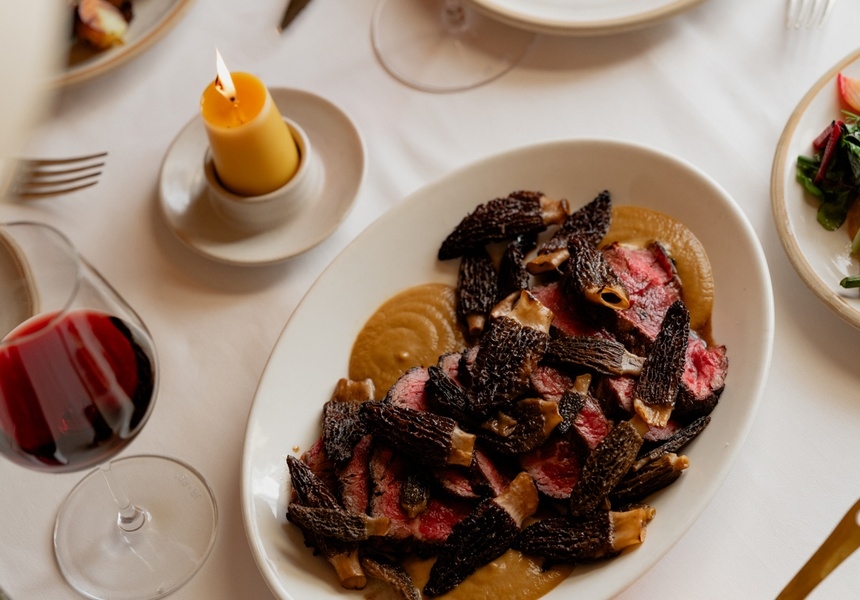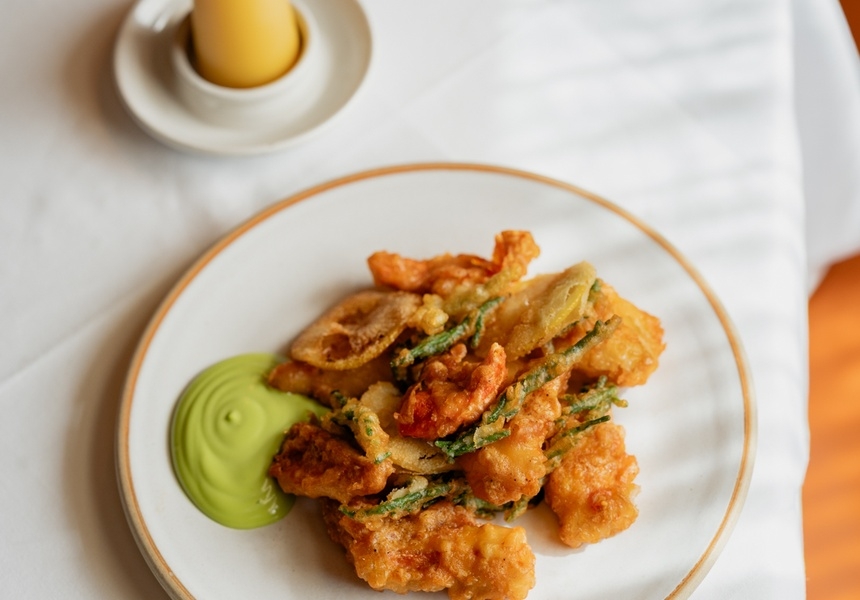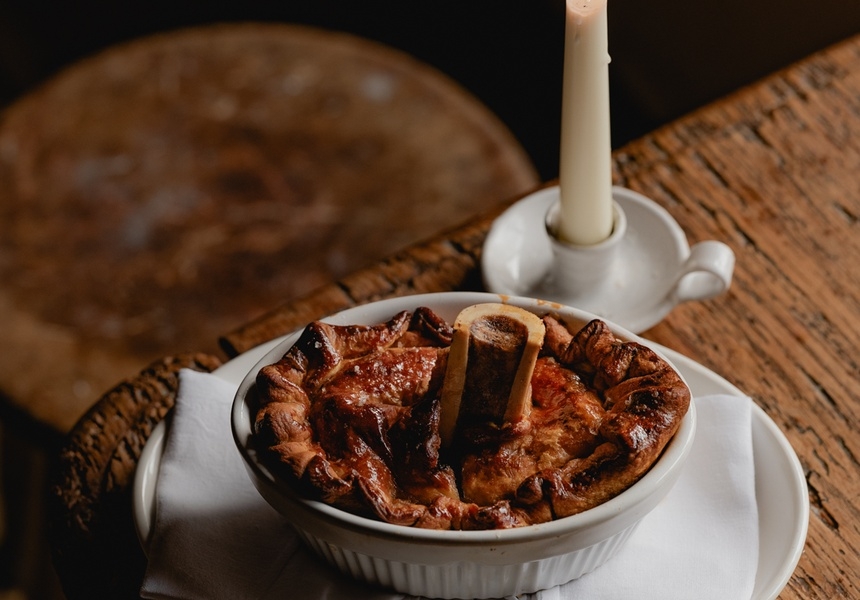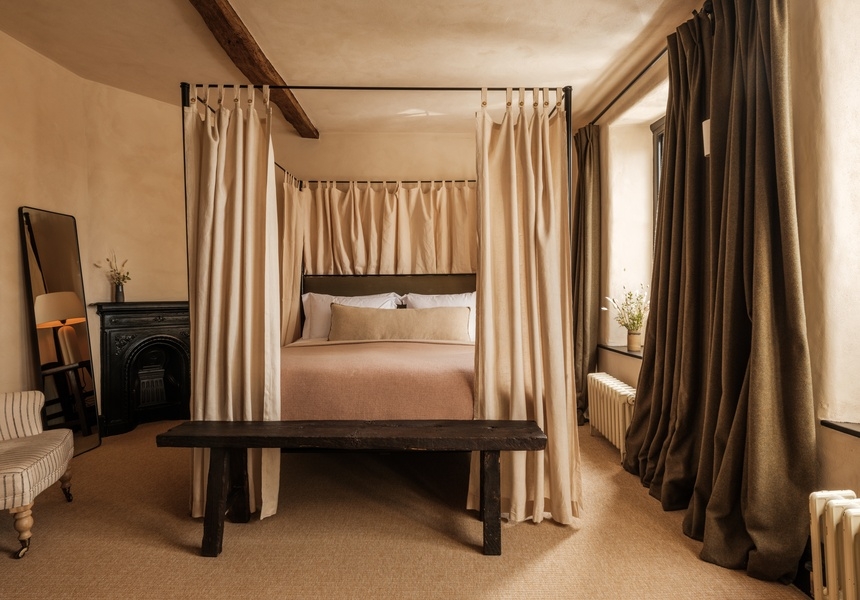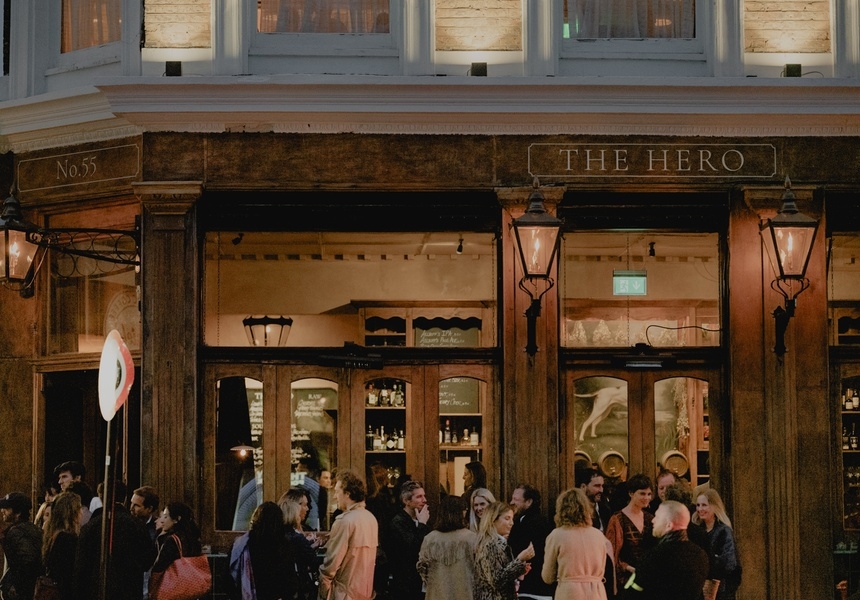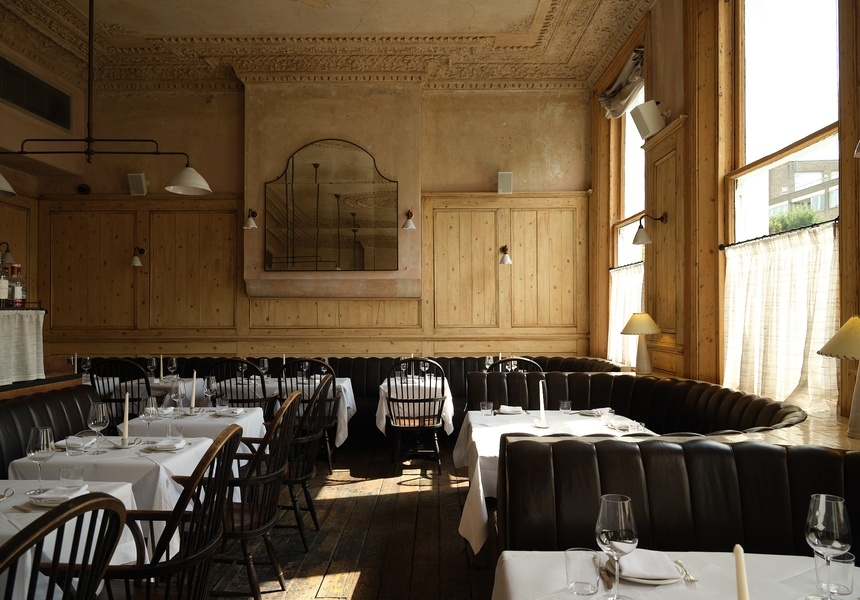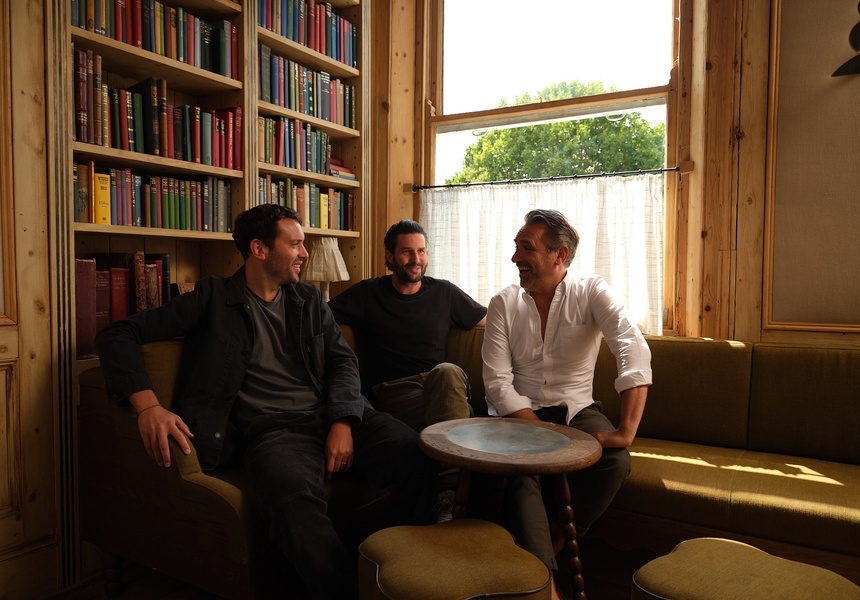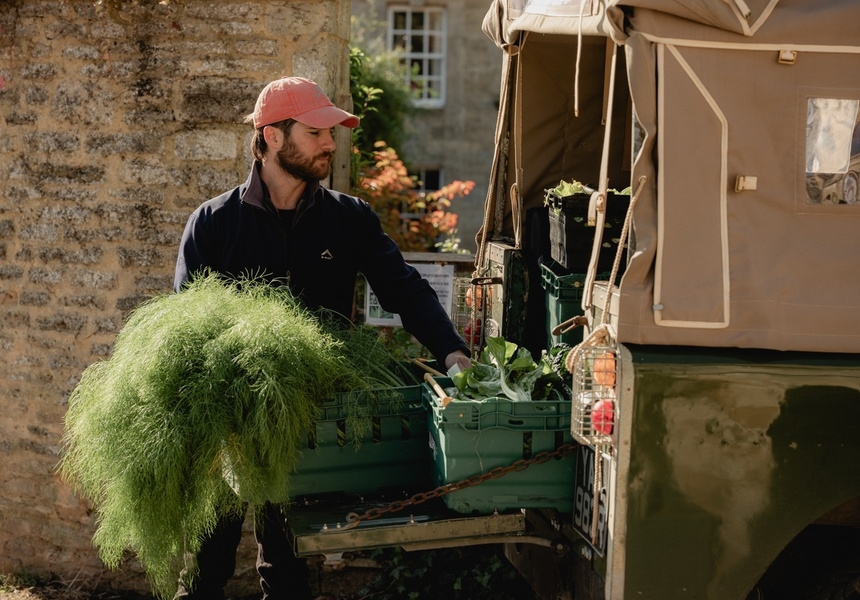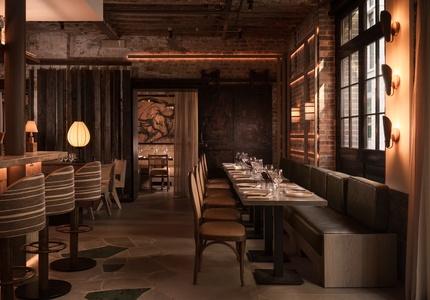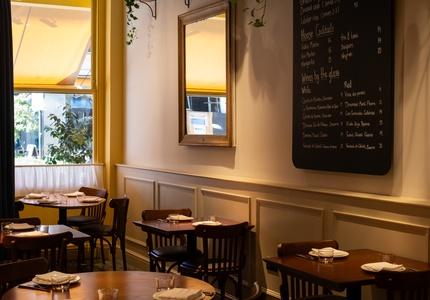As well as serving a very good sausage roll, the boys behind the Public House Group may just have invented teleportation. How else do you explain the eerie sense that they are in every single one of their venues simultaneously? You pop to The Pelican off the Portobello Road for half a Guinness and spot the three of them among a sea of well-groomed heads. You hotfoot it beneath the Westway to The Fat Badger for some reassuring beef fillet – and they’re all there once again, weaving through the cheerful tables, faces soft-illuminated by the flickering candlelight. You outfox them with a high-speed Uber up to The Hero in Maida Vale – and yet there they are waiting for you, installed already at the corner of the long bar, a pint of brown ale outstretched in offering. What is going on here? An intricate series of tunnels? A trio of moped taxis? A small army of body doubles?
“Yes, that’s really us,” laughs Phil Winser, 41, who’s sitting on a chestnut brown banquette next to Olivier van Themsche, 49, and James Gummer, 35, his partners in one of the country’s most exciting hospitality groups. They divide and they conquer. Winser does the design and the concepts. Gummer does the menu and the operations. And Van Themsche runs the business side and the portfolio acquisitions.
Runs is the operative word. This thing is a juggernaut. In the four short years since they started, the trio behind Public House Group have opened five formidable venues, launched an in-house design practice, boosted local farmers, and laid the foundation for a school of hospitality. Zoom out and the sum of those parts is a group quietly restoring the cultural significance of the British pub to that of the Italian trattoria and the French brasserie (and serving countless orders of very good mince on toast). And that’s before you get to the whispers around upcoming projects: an ambitious new site in Clerkenwell with a Japanese kaiseki counter; a more hotel-y hotel in the Cotswolds. It feels apt that the pub that kicked it all off is called The Pelican, the bird that famously bites off more than it can chew – and then quite happily chews it.
When we talk, the boys are in a cheerful, slightly nervy, final-dress-rehearsal-before-the-big-night mode. They joke and cajole as their group portrait is taken – an odd process that they’ve had to get used to in recent years. There’s something brotherly in their dynamic. The gags and goads, the unspoken affection and respect. In a matter of weeks they’ll open The Hart – the first city project beyond their west London proving ground – which will occupy a square, brown-bricked building on the corner of Chiltern Street in Marylebone. “It’s around this stage we all feel a huge amount of pressure,” says Winser.
But the calm before the storm seems, well, calm. One of the things about the Public House Group is that it seems to exist in two time signatures simultaneously: on the one hand, serene and laid-back – a portfolio of venues that are built thoroughly and painstakingly, that carefully envelop you in their candle-bathed hospitality. And on the other, a sort of brisk, beezering allegro march; new sites rumoured, new sites acquired, new sites popping up like girolle mushrooms in the valley. The analogy of the swan comes to mind, in fact (do they have a pub called The Swan yet? Quite possibly, by this point.) A beautiful, enchanting beast, sat serene above the glassy surface of the pond; and then, below the waterline, the frantic paddling of a set of powerful, eager, impatient legs.
The group now operates a full-service, in-house design studio, headed up by designer Leticia Blakiston Houston, which oversees the fit-outs of its venues, as well as the design of many of the objects within them. It sprung from the group’s signature warm, indulgent minimalism, which prizes natural materials, stripped back woods and local makers wherever possible. (Many of its fine pieces of furniture, for example, are restored at an old workshop near Charlbury in Oxfordshire.) The studio is so good at its job that the demand for its services goes beyond Public House Group – it will soon expand into external design projects for commercial and residential clients.
As for produce, the vast majority of what lands on your plate at a Public House pub is sourced in the UK, with a good proportion of it grown in a 1.6-acre farm plot at Bruern Farms near Chipping Norton. The meat, which mostly comes from Whittington Lodge and Paddock farms in the Cotswolds, is now increasingly being “broken down in our in-house butchery”, says Gummer. As with so much in this business, it’s a long way from the chain pubs of old.
The Public House Group is in some ways a product of serendipity. In 2021, Winser – who had previously made his name with The Fat Radish, a bustling, sceney British restaurant on Manhattan’s Lower East Side – found himself back in London at the tail end of the pandemic. He was living near All Saints Road in Notting Hill, just round the corner from Gummer, an old friend, who’d worked under Jeremy King at The Wolseley before setting up neighbourhood restaurant 7 Saints. The pair noticed that the terrace of the beautiful Victorian pub at the end of the street wasn’t looking particularly beautiful, or Victorian. It had been painted a ghastly shade of blue and was doing something half-hearted with pizzas. When the site came up for lease, the pair thought they’d see if they could create a pub for themselves. The Pelican, as they christened it (harking back to a former name) became an instant hit when it opened in 2022: a swoon of caramel-coloured chore jackets, exposed blond woods, simmering fireplaces and Colman’s on every tabletop.
A few months later, another lovely but faded pub site came across their desk – The Bull, in Charlbury, Oxfordshire, just down the road from where Gummer and Winser grew up. Back in the day, when they’d miss the train from Charlbury to London, they’d pop up the hill to the pub to have an ale while waiting for the next one, and Winser remembers arriving on horseback to have his first ever pint at the pub. The duo took on The Bull with the same devotion and attention to detail as The Pelican, and, with its bucolic Cotswolds locale, doubled down on what has since made all their venues so highly praised: very good local ingredients, prepared generously and served with warm hospitality. Giles Coren visited The Bull shortly after it reopened, and declared the pie the best of his life.
Around this time, Frenchman Van Themsche – the former founder of high-end social shopping site Cools – joined the party. Then things really took off. On the back of The Pelican’s success, the group secured the financial backing of a large family office, which enabled them to build a strong central team and pursue new opportunities – free from the short-term pressures of private equity, and with that crucial mix of structure and serendipity, it seems. All of their sites are held on free-of-tie leases (without obligations to a brewery), which gives them a free-range independence and flexibility with suppliers, produce and pricing.
In 2024, The Hero opened in Maida Vale over five light-flooded floors in the same cigar-box palette as The Pelican. Jay Rayner, who adored the cheese and onion pie, said the new owners had made “the sweetly familiar blissfully new again”. In The Grill, on the first floor, Winser has defied what he describes as his long-time “allergy to colour” with the tiniest flecks of blue: little toile-style tile illustrations depicting some of the more raucous tales from the pub’s rakish past.
Late last year came The Fat Badger on the corner of Golborne and Portobello roads: a sort of alehouse-speakeasy with a chalet-like restaurant on its top floor that does what I think is the best roast in town. Below it sits Canteen, the casual, constantly changing Italian spot that is, “if we are completely honest, the most selfish restaurant in the world”, Gummer laughs. “A place we’d want to eat lunch at every day.”
And now comes The Hart (the group is strong on animal names; even The Hero is named after a beloved hound) in Marylebone, that peculiar corner of central London that still retains something of a neighbourhood feel. Since the Chiltern Firehouse burnt down in February, the area has been lacking a natural centre of gravity. The Hart won’t replace the Firehouse, of course, but it will restore some of the bonhomie to one of London’s most beautiful streets.
“Pubs played such a vital role when these neighbourhoods were being built,” says Winser. “And when they’re closed, the whole street feels it,” adds Gummer. “It’s like this little bit of energy that’s been sucked out.”
Most surviving pubs, he notes, “have been here forever. We’re only looking after them for a certain period. So we have a responsibility to create something that warrants sitting on that corner.”
Pubs are distinct from restaurants, Winser adds, in that they have multiple uses, roles and timescales. Quick sharpeners or all-day celebrations; quiet moments with the paper or rambunctious wedding parties. On many occasions during the group’s builds, a local will pop their head into the dusty building site with plenty of questions and suggestions about the new incarnation, and a real urge for things to hurry up. “People feel a sense of ownership towards their pub,” says Gummer. “They really want their pub to succeed.”
The Hart, like those before it, will take its cue from the building it inhabits. Spread over three floors, and without the peerless Victorian ceiling heights of The Pelican or The Hero, it will inevitably feel different to its sister sites. “André [Balazs, the owner of Chiltern Firehouse] had [the site] beforehand, and so some of those little details are still there. But what I love about The Hart is it’s got lots of different nooks and crannies where you can hide away a little bit and have a pint with a friend,” says Gummer.
The trio have decided to put the open kitchen right in the middle of the action on the ground floor, something that’s commonplace in restaurants but vanishingly rare in pubs. “We’ve given the best, highest-ceilinged floor to the chefs. People would maybe think that was a bit silly. And, well, maybe it is a bit silly,” Gummer laughs. “But hopefully people will feel like they’re a part of the team.”
This is not a passing concern. The founders, who now oversee a staff of more than 350 across the group, are aware of the sometimes intimidating, even dispiriting, tenor of hospitality as a potential career. “I think that it’s a daunting industry to go into,” Gummer says. “And I don’t think we’ve done a very good job in this country at showing that it’s also a really fantastic industry to be in.”
Whereas in Europe and America the restaurant trade, both at the front and back of house, is seen as a lifelong metier, (and, in Italy, perhaps, even an art form) it’s often viewed in Britain as a stopgap, or an unglamorous slog for students.
The Public House Group has set up a hospitality school near Charlbury to attempt to “break down that barrier” and change the perception around the trade as a career choice. Pub Club, as it’ll be called, is based around a paid 12-week educational internship, which runs from food production and nutrition to front-of-house operations and finances.
The boom in haute hospitality offerings in the Cotswolds (Daylesford, Estelle Manor, Soho Farmhouse) masks a wider lack of job opportunities across the countryside. “So we are working with a lot of local charities and local state schools to help us find the students,” says Winser. “We’ll open the first pub school down there.”
This is not a typical move for a hospitality group on the rise. Initiatives of this sort are more often reserved for the end of a career, not the start of one. But it speaks to a wider ethos among the group – something that’s tangible in its careful restorations, the warm grain of its exposed woods, its kitchen garden, its whole-cut butchery, and the talent that has risen up across its projects (like chefs George Williams and Beth O’Brien at The Fat Badger – both alumni of Cork’s Ballymaloe Cookery School – whose food is garnering rave reviews in its own right).
It’s tempting to seek out some magic formula or secret recipe that conveniently explains the group’s success: how it has done so much, so thoroughly, to such acclaim, in such a short period of time. But the word I most often hear used to describe each of its venues – a word which bestows the highest possible praise from the city’s pubberati – is proper. Meat all the way down, like a decent pie.
